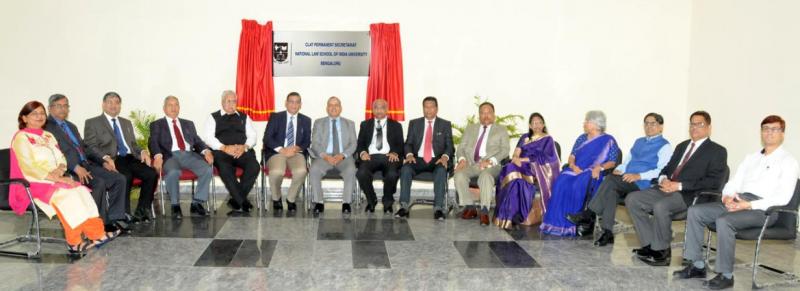
The new Common Law Admission Test (CLAT), which the national law universities (NLU) had recently decided will be held by a permanent CLAT secretariat instead of letting a new NLU learn find new ways of botching it up every year, will be held entirely offline.
The move has been a very obvious (and overdue) reaction to improve the quality of the CLAT, which since 2015 had been facing scrutiny in a Supreme Court petition by Increasing Diversity by Increasing Access (IDIA) founder Shamnad Basheer.
At a meeting held on 17 October at NLSIU Bangalore, chaired by Nalsar Hyderabad VC Prof Faizan Mustafa, the consortium decided unanimously for CLAT 2019 to go offline, with test centres in various cities and locations, besides just at NLUs, to be decided in accordance with the number of candidates from each region.
According to its press release, it was “keeping in view that in last few years there have been glitches due to the fault of the service provider in the conduct of the online CLAT examination” (which is putting it mildly).
Sensibly, the CLAT consortium decided it would also create a permanent website of the CLAT (rather than a new NLU getting a random service provider or state government to cobble together a new website to be abandoned at the end of the year.
The committee said it would also create a “question bank to which experts from all the NLUs and other institutions would be asked to contribute”, to improve the quality of the question paper (which in previous years has been pretty atrocious).
One NLU teacher, who preferred to remain anonymous, commented: “I feel the offline move will be good because it will make the examination much more inclusive and get rid of system glitches and the like that’s been plaguing CLAT over last few years.”
NLSIU’s VC Prof Venkata Rao would be treasurer of the consortium.
Furthermore, the CLAT 2019 LLM postgraduate admissions test would also include a “subjective portion” with “details” to be “worked out” by the CLAT executive committee, which consists of Rao, Mustafa, and the VCs of NLIU Bhopal, NLUO Cuttack (who would also be convenor for CLAT 2019) and RGNUL Patiala’s Prof Paramjit S Jaswal (as nominee of the convenor).
The NLU teacher said: “The subjective questions for LLM candidates is somewhat of a dual edged sword though. On the one hand, it’s necessary to test writing and thinking ability of graduate students. On the other hand, evaluation will become very subjective, since I doubt same teachers will be evaluating all the papers. Plus the range of questions would widely vary too. Therefore they would have to be quite general.
“Still, overall not a bad move, probably. LLM quality has fallen like crazy over last few years at the NLUs.”
Finally but more cryptically, proving that the meeting was not all CLAT, the Consortium also decided to “hold a workshop in collaboration with NAAC and UGC on evolving objective parameters for the accreditation of NLUs by NAAC and other accreditation agencies”.
threads most popular
thread most upvoted
comment newest
first oldest
first
Old wine, new bottle.
Don't know if it's the right decision,but appreciate it,hope 2019 the best clay year
* Fee for exam x 30000 (give or take 10000) students = a pretty good way to serve oneself on part of NLU-D.
threads most popular
thread most upvoted
comment newest
first oldest
first